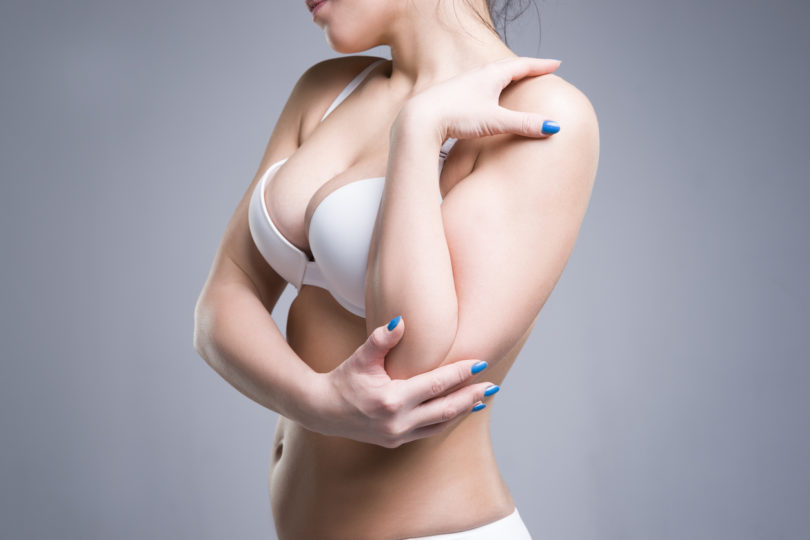Your breasts are rarely the same from year to year, or sometimes even week to week. Hormone changes, pregnancy, aging and other health factors can make your breasts feel and look different, but it can be hard to notice these changes or know what they mean.
Dr. Amna Feroze, a family medicine physician at Sentara Family Medicine & Internal Medicine Physicians in Williamsburg, suggests that every woman do a monthly self exam to understand what is normal for her breasts.
“The best time to do it is right after your menstrual cycle is over because hormone changes [to your breasts] are the lowest,” says Feroze. Feroze suggests that women take note of different aspects of their breasts, including:
- Any changes in the overlying skin
- Changes in the shape or color of the nipple
- Any discharge from the nipple
- Any bumps or lumps beneath the skin
When your breasts do change, they may try to tell you something about your health, such as:
Your Diet has Changed
Some foods can cause breast pain, painful cysts, or enlarged or shrinking breasts. If you experience frequent pain in both breasts or notice a change in your breast size, you should try to cut back on caffeine, salt, red wine or even some cheeses.
You’ve Lost or Gained Weight
Many women notice that their breasts are the first area of their body to change when they gain or lose weight. If you bra is gaping or your cups overflow, you might want to hop on the scale to see if you’ve had a change in weight.
Your Period is Coming
Any hormone changes, such as those that occur toward the end of your cycle, can make your breasts feel tender or swollen. You may also notice painful lumps as your period approaches. While you can have your physician check on these lumps, they may not be a cause for concern if:
- They appear in the same spot in both breasts
- They appear during the same part of your cycle
- They go away as your cycle progresses
You’re Pregnant
Even early in pregnancy, hormones can cause tenderness or heaviness in your breasts. Your nipples may also begin to darken. As your pregnancy continues, your breasts will grow to begin preparing for breastfeeding and you may notice nipple discharge. Feroze suggests that you try to breastfeed your children, if possible, because studies show breastfeeding can lower your risk for breast cancer.
You’re Starting Menopause
As you come closer to menopause, you begin to have lower and lower amounts of female hormones like estrogen in your body. You may notice a variety of changes in your breasts, including:
- Smaller size
- Change in breast shape
- Change in nipple size
- Increased breast lumpiness
These changes are likely normal, but you can always speak to your physician if you are concerned.
You have Breast Disease
The ducts and lobes inside your breasts can develop non-cancerous conditions, too. Fibrocystic disease can cause multiple painful cysts to develop in your breasts. Though these feel like lumps, they aren’t cancer. You can also get infections in your breast tissue, which should be diagnosed by a doctor. These infections can cause:
- Breast enlargement
- Red and warm breast skin
- Breast tenderness
- Pus discharge from the nipple
- Fever and body aches
You have Breast Cancer
While any breast change may immediately make you think of cancer, it’s important that you talk to your doctor before jumping to any conclusions. All the reasons listed above may be the more likely cause of breast changes.
You may be at a higher risk for breast cancer, however, if you have a family history of breast or ovarian cancer, or if you smoke or have taken hormone replacement therapy.
If you notice these changes, make an appointment with your doctor:
- Nipple discharge
- Inverted nipples (nipples that point inward when they usually pointed outward)
- One breast that has grown larger than the other
- A change in breast shape (especially if only on one side)
- A lump or thickened tissue in your breast or armpit
- Puckered, dimpled or scaly skin on the breast
- Red, warm or inflamed skin on the breast
Remember, only your physician can officially diagnose the cause of changes in your breast. Always turn to your trusted doctor for advice and care.



